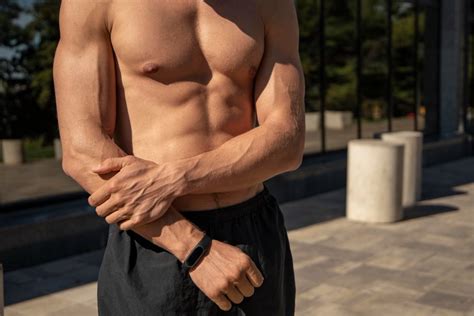Optimize male hormone balance via fitness for peak performance?

Unlocking Peak Performance: The Fitness-Hormone Connection
For men striving for peak physical and mental performance, the conversation often revolves around training intensity, diet, and recovery. However, an often-overlooked yet critical component is hormonal balance. Hormones act as chemical messengers, regulating virtually every bodily function, from metabolism and mood to muscle growth and energy levels. Optimizing these intricate systems, particularly male hormones like testosterone, cortisol, and human growth hormone (HGH), is paramount for achieving and sustaining an elite level of performance and overall well-being.
A well-tuned hormonal profile can mean the difference between feeling sluggish and unstoppable, making it a cornerstone of any serious performance strategy. But how exactly does fitness play a role in this delicate biological dance?

Key Hormones and Their Impact on Male Performance
Understanding the major players is the first step:
- Testosterone: Often considered the primary male hormone, testosterone is crucial for muscle mass, bone density, libido, red blood cell production, and mood regulation. Optimal levels contribute to strength, vitality, and mental fortitude.
- Cortisol: Known as the “stress hormone,” cortisol is essential for managing stress, inflammation, and blood sugar. However, chronic elevation due to overtraining or psychological stress can lead to muscle breakdown, fat gain, and suppressed immune function, directly hindering performance.
- Human Growth Hormone (HGH): HGH plays a vital role in cell regeneration, growth, and metabolism. It aids in muscle repair, fat burning, and bone strength, significantly contributing to recovery and overall physical capacity.
Fitness Strategies for Hormonal Harmony
Strength Training: The Testosterone Booster
Compound, multi-joint movements with heavy weights are incredibly effective at stimulating testosterone and HGH production. Exercises like squats, deadlifts, bench presses, and rows engage large muscle groups, signaling the body to produce more anabolic hormones. Aim for 3-5 sessions per week, focusing on progressive overload and adequate recovery.

High-Intensity Interval Training (HIIT): Efficient Hormonal Stimulus
Short bursts of intense exercise followed by brief recovery periods have been shown to boost HGH and testosterone, while also improving cardiovascular health and reducing body fat. HIIT sessions are time-efficient and can provide a significant hormonal bang for your buck. Integrate 1-3 sessions per week, being mindful not to overtrain.
Cardiovascular Exercise: Heart Health & Stress Reduction
While excessive steady-state cardio can sometimes elevate cortisol, moderate aerobic exercise is beneficial. It improves cardiovascular health, enhances nutrient delivery to muscles, and acts as an excellent stress reducer, helping to keep cortisol levels in check. Incorporate 2-3 sessions of moderate-intensity cardio weekly.

Beyond Exercise: The Holistic Approach to Hormonal Optimization
Fitness is just one piece of the puzzle. For true peak performance and hormonal balance, other lifestyle factors are equally critical.
Nutrition: Fueling Hormone Production
A balanced diet rich in whole foods is non-negotiable. Ensure adequate intake of:
- Healthy Fats: Crucial for hormone synthesis (e.g., avocados, nuts, seeds, olive oil).
- Protein: Essential for muscle repair and growth (e.g., lean meats, fish, eggs, legumes).
- Complex Carbohydrates: Provide sustained energy and prevent cortisol spikes from low blood sugar (e.g., whole grains, vegetables).
- Micronutrients: Zinc, Vitamin D, Magnesium are particularly important for testosterone production.
Sleep: The Ultimate Recovery Tool
Quality sleep is perhaps the most underrated factor for hormonal health. During deep sleep, the body repairs itself, and significant amounts of HGH and testosterone are released. Aim for 7-9 hours of uninterrupted sleep per night to allow for optimal hormonal synthesis and recovery.

Stress Management: Taming Cortisol
Chronic stress, whether from work, relationships, or overtraining, can relentlessly elevate cortisol, which in turn can suppress testosterone. Incorporate stress-reduction techniques like meditation, deep breathing exercises, yoga, spending time in nature, or engaging in hobbies. Finding effective ways to de-stress is vital for maintaining hormonal equilibrium.

The Path to Sustained Peak Performance
Optimizing male hormone balance through fitness is not about quick fixes or magic pills. It’s a comprehensive approach that integrates smart training with diligent nutrition, adequate sleep, and effective stress management. By understanding how these elements interact and consciously implementing strategies to support your endocrine system, you can unlock a higher level of energy, strength, mental clarity, and overall well-being, paving the way for sustained peak performance in all aspects of life.









